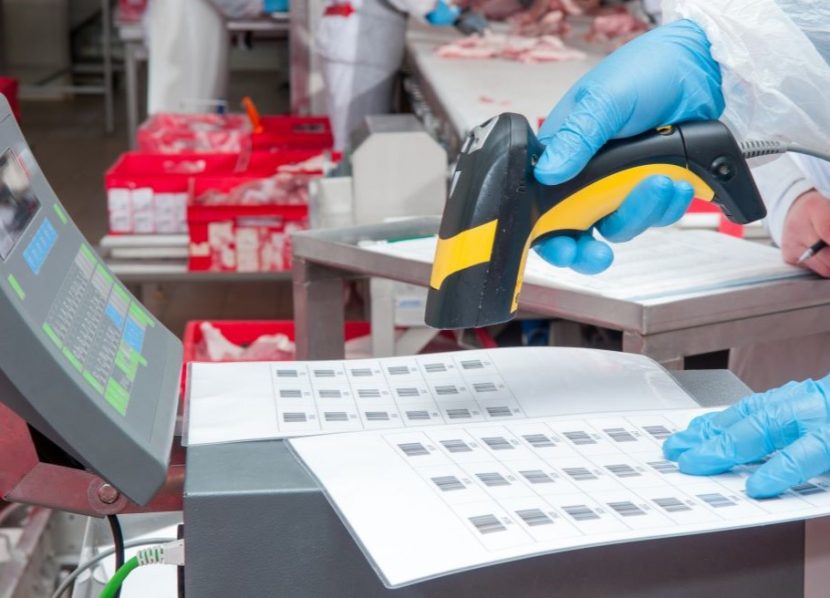Enhancing Traceability: Preparing for FSMA 204’s New Standards in Food Safety
By Shubh Singh
Regulations play a crucial role in preventing foodborne illnesses and maintaining food safety. With FSMA 204 set to come into full effect by January 2026, it’s imperative for companies to adequately prepare for increased traceability requirements. To comply, organizations must ensure that they have the right people, processes, and technology to support and adhere to these food safety regulations.
An estimated 48 million people in the U.S. get sick, 128,000 are hospitalized, and 3,000 die each year from foodborne disease, according to data from the Centers for Disease Control and Prevention (CDC).
The Role of Regulations
Food safety regulations serve as the backbone of consumer health protection. They set the standards for handling, processing, and transporting food to prevent contamination and spoilage. These regulations benefit consumers by preventing disease and death, establishing industry standards, and supporting informed behaviors and decisions.
These regulations benefit consumers by preventing disease and death, establishing industry standards, and supporting informed behaviors and decisions.
They also play a critical role in protecting businesses from legal liabilities and maintaining their reputation. Compliance with food safety laws is not only a legal requirement but also a moral obligation to ensure the well-being of consumers.
The Regulators in Food Safety
There are more than 15 federal agencies involved in regulating and overseeing food safety in the United States alone. The (FDA), with responsibilities that encompass food as well as consumer products, drugs, biologics, medical devices, electronics, cosmetics, veterinary products, tobacco, alcohol, consumer products, and more. The Centers for Disease Control and Prevention (CDC) also leads efforts to gather data and investigate foodborne illness handling surveillance and outbreak detection.
In 2011, the Obama Administration introduced the FDA’s Food Safety Modernization Act (FSMA) in response to the growing food safety challenges occurring within the food system. FSMA was a major shift from responding to contamination to preventing it. FSMA gave the FDA new authority and requirements for food businesses to implement science-based preventative controls and Hazard Analysis at Critical Control Points (HAACP) to identify and mitigate potential food safety risks.
Building on that foundation, FSMA Section 204 establishes the Food Traceability List (FTL), designating specific high-risk foods that require enhanced record-keeping and traceability. Foods like fresh-cut fruits and vegetables, leafy greens, nut butters, shell eggs, soft cheeses, seafood varieties, and more, now have more detailed recordkeeping and traceability requirements.
Enhanced Processes for FSMA 204 Compliance
Food companies must establish or updated their current practices and processes to comply with FSMA 204. This includes developing standard operating procedures (SOPs) for record-keeping and detailed traceability plans. Businesses must maintain records containing Key Data Elements (KDEs) associated with specific Critical Tracking Events (CTEs) and provide these records to the FDA within 24 hours of a request.
- KDEs can include details about location and origin, the date of harvesting or production, the quantity, and the product description.
- CTEs are points along the supply chain or a product’s life cycle that require enhanced recordkeeping, like upon shipping or distribution.
The type of product a food manufacturer creates will determine which CTEs they need to worry about and what data they need to record.
FSMA 204 Compliance Requires Tech Solutions
Technology will enable businesses to meet the stringent requirements of FSMA 204 efficiently. Companies should ideally utilize software to streamline traceability efforts and make it more efficient. Implementing advanced tracking systems, such as Radio Frequency Identification (RFID) tags and Internet of Things (IoT) sensors, can also provide real-time data on the movement and condition of food products throughout the supply chain. These technologies can facilitate a quick response during a food safety incident, thereby minimizing the impact on public health and business operations.
Training a Culture of Food Safety
The success of any food safety regulation hinges on the people involved. Training staff on the new FSMA 204 requirements is crucial. Employees at all levels must understand the importance of their role in maintaining food safety and the consequences of non-compliance.
A robust food safety culture should be fostered within the organization, where adherence to regulations is seen as a collective responsibility.
As we stand on the cusp of implementing FSMA 204, it is imperative for the food industry to reflect on the historical significance of food safety regulations and embrace the changes ahead. By investing in people, refining processes, and leveraging technology, the food industry can ensure compliance with upcoming regulations and continue to protect consumers’ health worldwide. The commitment to food safety is not just a regulatory requirement but a testament to the industry’s dedication to public welfare and its own long-term sustainability.
About the Author
Shubh Singh, MBA, is an expert in sustainable packaging and labelling technologies with more than 6 years in the agriculture industry. Singh is currently a management consultant with Nazar Systems, a food service tech firm delivering supply chain visibility. Previously, Singh was head of business development for Accu-Label International, director of the International Federation for Produce Standards (IFPS), and a member of the International Fresh Produce Association’s (IFPA) Blockchain Task Force and Product Identification Committee. He’s contributed to the Standards Council of Canada’s Data Governance Standardization Roadmap, focusing on consumer empowerment, food safety, and traceability.

-
 FeaturedRisk management
The Cost of a Breach: What a Cyberattack Could Mean for Food Safety Recalls
FeaturedRisk management
The Cost of a Breach: What a Cyberattack Could Mean for Food Safety Recalls
-
 FeaturedRisk management
Securing the Food Chain: How ISO/IEC 27001 Strengthens Cybersecurity
FeaturedRisk management
Securing the Food Chain: How ISO/IEC 27001 Strengthens Cybersecurity
-
 FeaturedRisk management
Revolutionizing Food Safety Training: Breaking Out of the “Check-the-Box” Mentality
FeaturedRisk management
Revolutionizing Food Safety Training: Breaking Out of the “Check-the-Box” Mentality
-
 GFSI Standards
GFSI 2025: Building Trust, Tech-Forward Solutions, and Global Unity in Food Safety
GFSI Standards
GFSI 2025: Building Trust, Tech-Forward Solutions, and Global Unity in Food Safety
-
 FeaturedFood Safety
Integrated Pest Management: Strategies to Protect Your Brand’s Reputation
FeaturedFood Safety
Integrated Pest Management: Strategies to Protect Your Brand’s Reputation
-
 FeaturedFood Safety Culture & Training
No Open Door Policy: Challenges That Impact Pest Control in Food Processing Plants
FeaturedFood Safety Culture & Training
No Open Door Policy: Challenges That Impact Pest Control in Food Processing Plants




